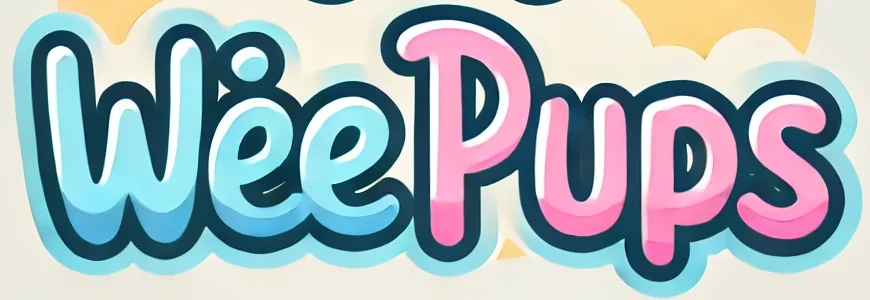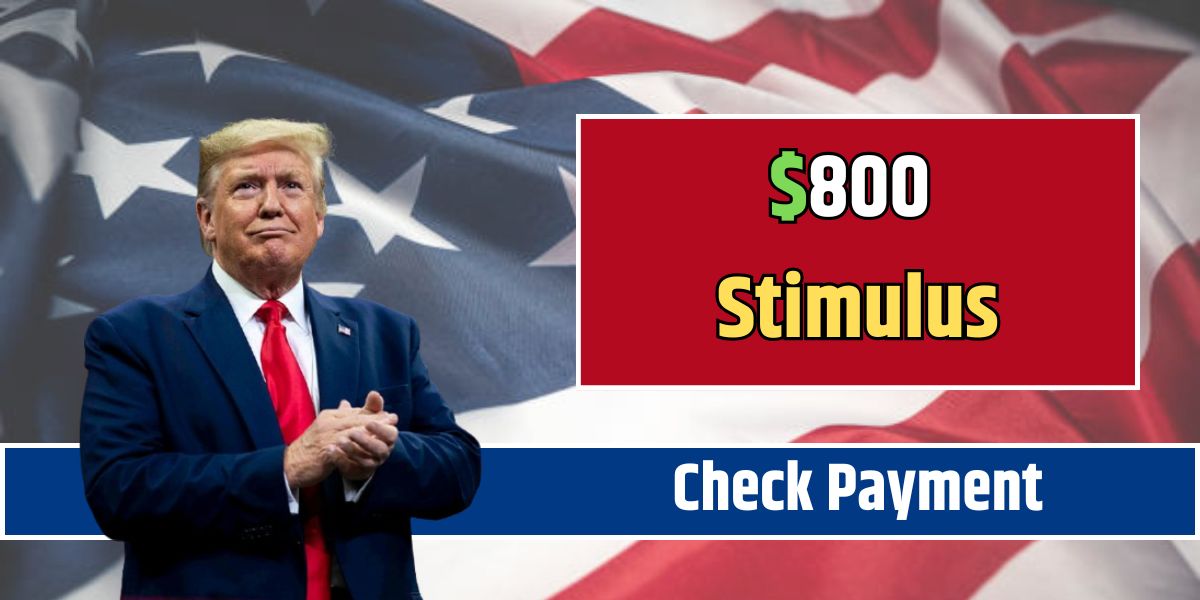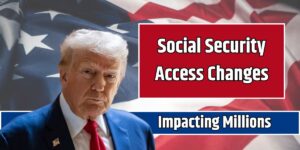As 2024 draws to a close, rumors about an $800 stimulus check have been circulating widely on social media and various websites. These claims suggest the payment is aimed at providing financial relief for low-income individuals and seniors to combat rising costs of living. However, no official confirmation has been made, making it essential to separate fact from fiction before relying on such promises.
No Official Announcement of an $800 Stimulus Check
The most critical fact to note is that there has been no official announcement from the federal government regarding an $800 stimulus payment. Agencies responsible for administering such programs, including the IRS and the Department of the Treasury, have not issued any statements. Similarly, major news outlets like CNN, Fox News, and The New York Times have not reported on this topic.
Typically, when a stimulus program is in the works, it goes through a detailed approval process that involves public announcements, media coverage, and detailed documentation. The absence of these steps strongly indicates that the rumor lacks credibility.
Origins of the Rumors
The rumors about the $800 stimulus check seem to have originated from social media posts and unverified websites. Sensational headlines often spread quickly, especially during times of economic stress when people are already worried about finances. Inaccurate information like this preys on public anxiety, gaining traction even without factual backing.
Common Myths About the $800 Stimulus Check
1. Targeted Assistance for Low-Income Individuals and Seniors
A prominent claim is that the payment will focus on seniors and low-income households. While previous stimulus checks during the pandemic were targeted toward vulnerable groups, no government agency has announced such a plan for this alleged payment.
2. Release Date of November 2024
Some rumors suggested that the checks would be distributed in November 2024. However, creating and approving a stimulus program requires congressional approval and presidential endorsement, which has not occurred. With no legislative actions taken, this timeline is baseless.
3. Payment Methods: Direct Deposit or Paper Checks
Claims about how payments would be distributed—via direct deposit or mailed checks—are also unfounded. While these methods were used for past programs, the absence of an actual stimulus program makes such details speculative.
4. Income Requirements for Eligibility
Some rumors claim income limits for eligibility, such as $75,000 for individuals and $150,000 for couples, mirroring thresholds from past programs. However, no credible sources have confirmed income criteria for the rumored payment.
How Stimulus Programs Typically Work
To better understand why the $800 stimulus check rumors are implausible, it’s helpful to review how past programs were implemented. During the COVID-19 pandemic, the government introduced three rounds of stimulus checks:
- Programs were announced publicly and widely covered by media outlets.
- Congress passed the necessary legislation, which was then signed into law by the President.
- The IRS and Treasury Department handled distribution and provided clear guidelines for eligibility and payment methods.
These programs were responses to a national crisis and required months of planning, approval, and execution. Currently, no similar steps have been initiated for a new stimulus program.
Why Are These Rumors Spreading?
Economic challenges like rising inflation and high costs of living make financial relief a popular topic. In such an environment, rumors about government aid can gain momentum, even without credible evidence. Sensational claims often thrive on social media, where misinformation spreads faster than verified facts.
What to Watch For
If a legitimate stimulus program were to be introduced, these would be the signs:
- Official Announcements: Look for updates from the IRS, Department of the Treasury, or the White House.
- Media Coverage: Trusted news outlets would report extensively on the proposal, approval process, and distribution details.
- Legislative Actions: Stimulus payments require congressional approval, which is a public process involving debates and votes.
Protecting Yourself from Misinformation
To avoid falling for false claims:
- Verify Information: Rely on reputable sources like government websites and trusted media outlets.
- Be Skeptical: Treat unverified social media posts and sensational headlines with caution.
- Check Official Sources: The IRS website (irs.gov) and Treasury Department are the most reliable resources for updates on stimulus programs.
The Reality of the $800 Stimulus Check
After examining the facts, it is evident that the $800 stimulus check is a myth. No credible sources have verified its existence, and all associated claims—such as eligibility, release date, and distribution methods—are unfounded.
While the hope for financial aid is understandable, relying on unverified rumors can lead to confusion and disappointment. Always prioritize information from official government channels and trusted media when assessing the legitimacy of financial relief programs.
FAQs
Is the $800 stimulus check real?
No, there is no evidence to support the existence of an $800 stimulus check. The IRS and Treasury Department have not announced any such program.
Who started the $800 stimulus check rumor?
The rumor appears to have originated from social media posts and unverified websites that often share sensational claims.
Will there be another stimulus check in 2024?
As of now, there is no indication that another stimulus check will be issued in 2024. Any new program would require congressional approval and official announcements.
How can I confirm legitimate government assistance programs?
Check official government websites, such as the IRS or the Department of the Treasury, and look for news coverage from reliable media outlets.
What should I do if I need financial assistance?
Explore existing government programs like the Earned Income Tax Credit (EITC) or Supplemental Nutrition Assistance Program (SNAP) for financial support.




